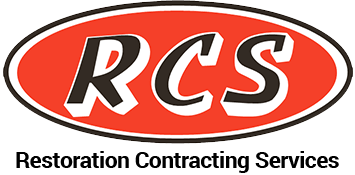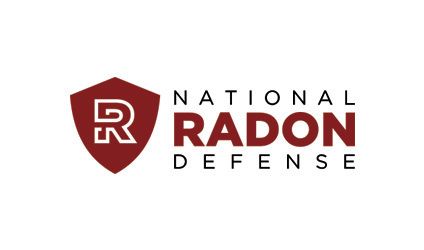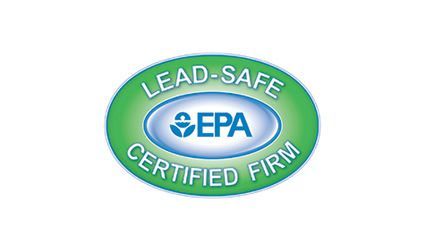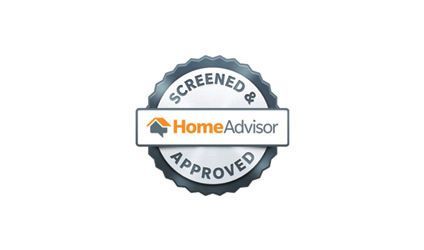FAQs
Restoration Contracting Services
Have a question about our restoration or radon services? We have the answer. Check out these FAQs and give us a call today for more information!
-
Are radon testing devices hard to find and not reliable?
Reliable radon testing is available from qualified radon companies and testers. Active radon devices can constantly gather and periodically record radon levels to uncover any unusual fluctuations in the radon level during the test. Reliable testing devices are also available for purchase from RCS. Call our office to order a charcoal test kit that you can do at your convenience.
-
Are scientists really sure radon is a problem?
Although some scientists dispute the exact number of radon-related deaths, all the major health organizations (the Centers for Disease Control, the American Lung Association, and the American Medical Association) agree with estimates that radon is responsible for thousands of preventable deaths a year. This is especially true among people who smoke since the risk to smokers is much greater than for people who do not smoke.
-
Can I turn off the equipment at night?
No, we really need to keep the equipment running. By turning off the equipment it may increase the chance of mold growth.
-
Do I have mold?
This is a very big concern and we at Restoration Contracting Services have spent a lot of time and money on education and equipment to become qualified in water damage restoration. In most cases, if the drying process can be started fairly quickly, you generally do not need to be concerned with mold. The truth is every home that is constructed of wood framing has mold. Mold is in the brand-new lumber from the lumber yard. There's mold whether you have had water damage or not. The question is are the mold levels acceptable or not.
-
Do I need an estimate before you start the dry-out?
Often the amount of the dry-out is unknown, however, our pricing is based on standardized pricing for the industry. We use a computer-estimating program that downloads the new price list every quarter. Your insurance company also uses the same program and price list. When an adjuster is assigned to your claim, we will explain to them what we have done up to that point, and then get authorization before further steps are taken. Before any repairs are made we will have an agreed estimate with your insurance company.
-
Do I need to do anything?
We have worked very hard at building a business where your responsibilities are very minimal. There may be a few items we will need you to pick out such items as floor covering, etc. For the most part, you should be able to just go about your daily activities without much worry or concern.
-
Does radon only affect certain types of homes?
Radon can be a problem in any type of home, including new homes, old homes, insulated homes, drafty homes, homes with basements and homes without basements. Local geology, construction materials and how the home was built are among some of the factors that can affect levels of radon in homes.
-
How do you know if everything is dry?
We use moisture meters designed to check for proper moisture content. This is why you contracted a professional restoration company not just a construction company. We are trained and certified in water damage assuring you, the homeowner, of the best quality service.
-
How long will the dry-out take?
Typically, the average water loss takes between 2 to 5 days. If materials have been exposed to water over a long period of time it may take 4 to 7 days.
-
How much is my electric bill going to be with all of this equipment?
We have made every effort to use equipment that maximizes the fastest drying time but consumes the least amount of power necessary to achieve the best drying time and results. Below is an approximate cost for each piece of equipment:
- Air movers - $0.25 per day
- Large air movers - $0.75 per day
- Small dehumidifier - $1.25 per day
- Large dehumidifier - $1.75 per day
-
If it can't be dried, what will be replaced?
Our job is to bring you back to a pre-loss condition. After the dry-out process has been completed, we will be able to determine what has permanent damage. At that time, we will submit an estimate of repairs to your insurance adjuster for approval.
-
Is it hard to sell a home where radon problems have been detected?
If you fix the radon problem, the sale of your home will not be blocked and the added protection will be a good selling point.
-
Is it OK to keep this equipment running or do I need to do something with it?
The equipment we use is capable of running for months without being shut off. They will not overheat and should be fine. If you hear or smell anything which seems not to be normal, please unplug the equipment and call us immediately. Our technicians will be monitoring and checking all equipment and the moisture levels throughout the dry-out process on a regular basis.
-
Is radon only a problem in certain parts of the country?
High radon levels have been found all over the country, in every state. Radon problems do vary from area to area, but the only way to really know a home's radon level is to test. 40% of PA homes have radon levels above the action level of 4 Picocuries per liter, per EPA guidelines.
-
Is radon testing time-consuming and difficult?
Radon testing is fairly easy. You can test your home yourself or hire a qualified radon testing company. Either approach takes a relatively small amount of effort, time and cost.
-
Is the final choice on the finished product my decision or the adjusters?
The choice of the repairs is always yours. Your insurance company only owes like, kind and quality. If you choose to do something else, you may have to pay more out of your pocket.
-
Is your neighbor's radon testing result a good indicator of whether your home has a radon problem?
It's not. Levels of radon vary from home to home. The only way to know for sure if your home has a radon problem is to test.
-
Must I stay in my home during the dry-out process?
Often you can stay in your home depending on the areas that are affected. You may lose the use of your bathroom, kitchen, etc. If you need to stay outside of your house, you may want to ask your adjuster about additional living expense of A L E coverage.
-
Should we make arrangements for you to get in our house?
Yes, it is very important that we have access to monitor the job. If you are not going to be available, then we need to work out a plan to gain access.
-
The equipment you have running is making the air feel muggy. Can I open a window or door to let in fresh air?
Our equipment is increasing the rate of evaporation causing the air to feel wetter. Part of our monitoring process includes checking both the conditions indoors and out. If our technicians instruct you to open some windows that may mean that the conditions outside will help in the drying process. Otherwise, with the use of our high-tech dehumidifiers you will notice much dryer conditions in 24 to 48 hours.
-
What if we want to do the repairs?
The most critical part of water damage is the drying process. After the dry-out has been completed by our trained and certified technicians you may want to do the repairs yourself or hire a general contractor to do the repairs and that would be fine. We can bill your insurance company for the emergency repairs separately.
-
What is Benefect and why do you apply this product?
Benefect is plant-based and designed to inhibit, destroy or prevent the development of microorganisms. Many times, we will use this product as a precautionary step. Your health is our main concern.
-
What is going to happen with my damaged furniture and/or contents?
We will do our best to restore your contents to a pre-loss condition. If we are not able to restore any items we will set them aside to be itemized and turned in to your insurance adjuster. Your adjuster will determine coverage according to your policy.
-
What is restorative drying?
A few years ago, the standard procedure was to remove any wet materials, and replacing them with new ones. Today, with much better equipment and training, our goal is to dry out your structure, saving as much of the structure as possible.
-
Why do you have to monitor the job so often?
For us to achieve the best results, we need to closely monitor the dry-out process. This may include moving, adding or removing equipment and checking humidity and temperature readings.
-
Why does my house smell so bad?
Often the humidity in your house has maybe doubled or tripled from what is normal and materials are wet, that normally are not designed to get wet. If it has been 3 to 4 days since the initial water loss and you start smelling a souring smell, you may be getting bacteria forming. After we have dried out everything the smell should be gone.
-
Why does the adjuster wait so long to inspect my loss?
Often the adjuster will wait until the dry-out process is complete in order to evaluate damages. Other times because of our relationship with the adjuster, they may rely on our photos and scope of repairs without doing an inspection of their own.
-
Why is it so dry in my house?
It is our goal to get the air in your house as dry as possible, by doing this it speeds up the drying process. However, it may feel dryer than you may be used to. You may also need to water any plants more often.
-
Why must we go through all this paperwork prior to extraction?
We try to stay as organized as possible to help ensure the quality and customer service you deserve. Paperwork is a very important part of the foundation to help us to achieve this.






Share On: